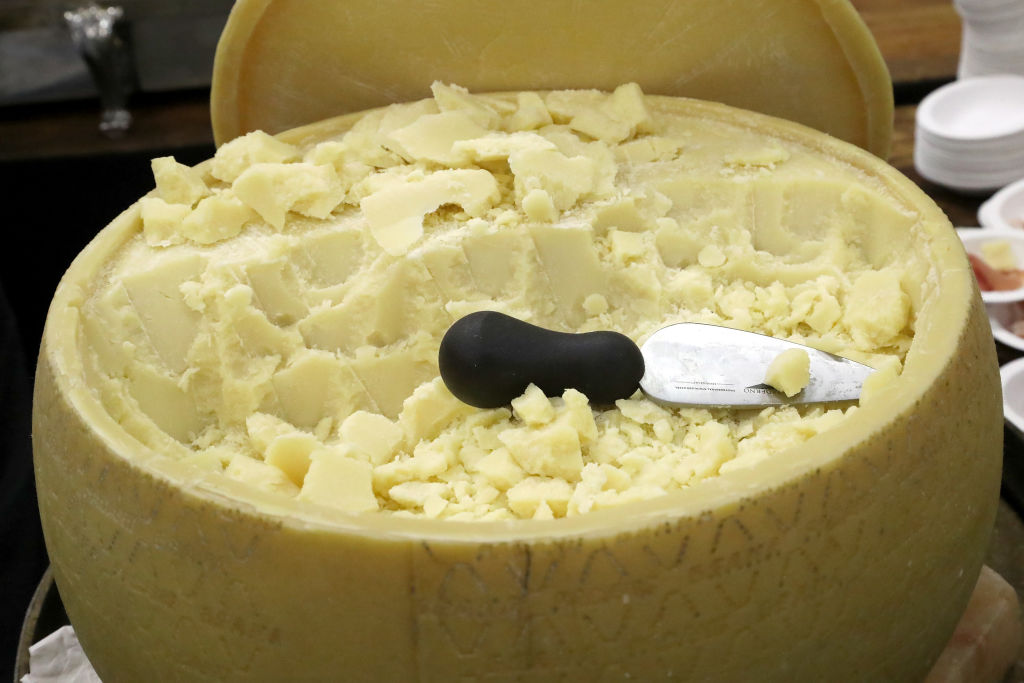Time to talk about the price of milk: artisan cheese could save our dairy industry

Milk has always held a curious place in the political psyche. It has long been used as a measure of affordability of everyday goods – and our leaders’ understanding of the challenges facing many Britons.
As inflation, pressures on transport and the war in Ukraine have triggered a spike in prices, the price of milk could go up by as much as 50 per cent.
It’s not just milk that’s affected, of course. This seems obvious – the same pressures on dairy farmers are having an impact on other parts of the sector, such as the country’s £3.2bn cheese industry. Many supermarkets have watched their supplies dwindle of the yellow stuff.
This may seem niche, an irritating corollary of the rising price of milk. But a massive 91 per cent of adults eat cheese, almost a third of them eat it every other day. Much of the supply crisis has been a direct result of the supermarkets putting the squeeze of farmers, as they compete purely on price and shoppers base decisions on price-slashing and “best deals”.
It creates a vicious cycle of downward pressure on prices, from the shelf all the way back to the producer, that bites when inflation bites. What’s happening now, further accelerates an inevitable issue — no one along the supply chain gets paid a fair price, purely so the consumer can eat cheap cheese.
C’est la vie — it’s just market forces, you might think. Try telling that to Britain’s dairy farmers. Ever since the dissolution of the Milk Marketing Board in the early 1990’s, dairy farmers have been leaving the industry in their droves as supermarkets lose money on milk.
There are less than 12,000 dairy farms today — compared to 35,700 in 1995 and over 196,000 in 1950. Conversely, over that time, supply of milk has gone up, driven by large scale production resulting from wafer-thin margins, meaning the only way to make the model work is to constantly scale.
Consumers are also less likely to absorb price rises. There has been a rise in dairy alternatives from an ethical perspective, as well as a misguided notion of what a litre of milk “should” cost thanks to decades of loss leading at supermarkets.
This sounds like a grim picture. But while mass cheesemakers supplying supermarkets are suffering, Britain’s artisan cheese industry is thriving. In fact, small scale cheesemaking has been the most successful route to diversification for farmers for the past 30 years. Foreign Secretary Liz Truss, once derided for branding it a “disgrace” that we import two thirds of cheese, would be thrilled – there are now nearly 1,000 varieties produced in the UK, or more than double that produced across the Channel.
They are also better insulated from the crisis. A large proportion of artisan cheese makers are certified organic – or come within a whisker of it. Many of these farmers produce the vast majority of their feed and fertiliser, so the impact of price increases from imports won’t be as catastrophic.
In many cases, these farms produce more energy (ground source pumps, batteries, wind power, solar power) than they use – protecting them, and their consumer, from energy price hikes. The growing pressure and price cuts hits higher scale, lower margin producers first. Slowly, there has been more of a move towards organic farming, and however painful it is right now, market forces are pushing this further.
From a consumer perspective, choice will actually open up, even as it feels as if small luxuries are closing down with squeezes on household budgets, driven by a renaissance in small-scale, traditional cheesemaking. It will also mean a closing of the price gap between “pile them high and sell them cheap” products and traditional hand-crafted artisan cheese.
